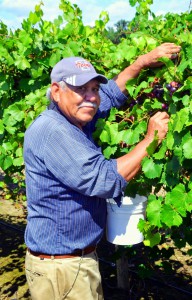By Lillian Kaide, SU Frances Perkins Fellow, Seattle
 It was deep into my pre-hearing conference with a client that the reality of the language barriers she faced emerged as a fully formed picture. She had signed documents alleging facts that she disputed because she was unable to read English. Her supervisor had a job termination meeting with her where she was asked if she understood the allegations against her; she replied ‘yes’ because she was embarrassed that she did not understand the words that her supervisor used. While my client had an interpreter to understand her administrative hearing, she was rightfully frustrated by her job separation and the unemployment insurance process. Neither proceeding had been inclusive or accommodating.
It was deep into my pre-hearing conference with a client that the reality of the language barriers she faced emerged as a fully formed picture. She had signed documents alleging facts that she disputed because she was unable to read English. Her supervisor had a job termination meeting with her where she was asked if she understood the allegations against her; she replied ‘yes’ because she was embarrassed that she did not understand the words that her supervisor used. While my client had an interpreter to understand her administrative hearing, she was rightfully frustrated by her job separation and the unemployment insurance process. Neither proceeding had been inclusive or accommodating.
I find the most meaning in my work with the Unemployment Law Project in moments like these: fighting for a client whose legal needs must be met and who has already faced significant challenges. Truthfully, sometimes, rather than identifying ULP as a legal aid organization, I think of us as the storytellers of the untold stories of the vulnerable people in Washington.
My work as the second SU Frances Perkins Fellow is as diverse as the people ULP serves. In addition to representing clients in their administrative hearings and further appeals, I have been working on community outreach projects. The focus of my work is to connect ULP with Washington’s immigrant and refugee community members. Most recently, I have been reaching out to the different branches of the Seattle Public Library to include our informational brochures in their community rooms or by their computer stations. I am also working on expanding the translated versions of our informational brochures to include languages such as Korean, Amharic, and Arabic. My overarching goal with each project is to minimize the access and language barriers clients face when accessing ULP’s services.
Thus far, I have been able to represent a broad range of clients, including many immigrants. Most recently, I represented an Iranian woman who was fired from her job after being accused of child endangerment by her employer. In another case, I represented a Filipino woman who quit after suffering from food poisoning caused by food provided by her employer. Her case was particularly difficult because she received a new hearing after appealing to the Commissioner’s Review Office, and she did not understand why she was responsible for testifying in a new hearing. As her representative, I sympathized with her frustration. She had been fighting for her unemployment benefits for almost a year with limited understanding of the administrative process. As of today, her case has consisted of three hearings and one appeal to the Commissioner’s Review Office, and we are still waiting to hear back from the ALJ regarding her last hearing. No person should have to go through this process by themselves. Her case is a great example of the principle that every person should be entitled to access legal representation, that lawyers are not privileges for those who can afford to pay for them.
My time with ULP has been as rewarding as it has been challenging. I truly cannot express my gratitude for the opportunity to help create social change, especially in my first fulltime position after law school. I would like to extend a big thank you to everyone who made this fellowship available for a second year, particularly Jennifer Werdell, Diana Singleton, and the Access to Justice Institute for their continued support and vision.
The SU Frances Perkins Fellowship is named after the first woman to be Secretary of Labor Frances Perkins. She had a lifelong dedication to workers rights after she witnessed the 1911 Triangle Shirtwaist Factory fire in New York. Many immigrant women lost their lives in that fire due to the unsafe working conditions. The fellowship is funded by the Seattle University School of Law Access to Justice Institute and donors to ULP.


